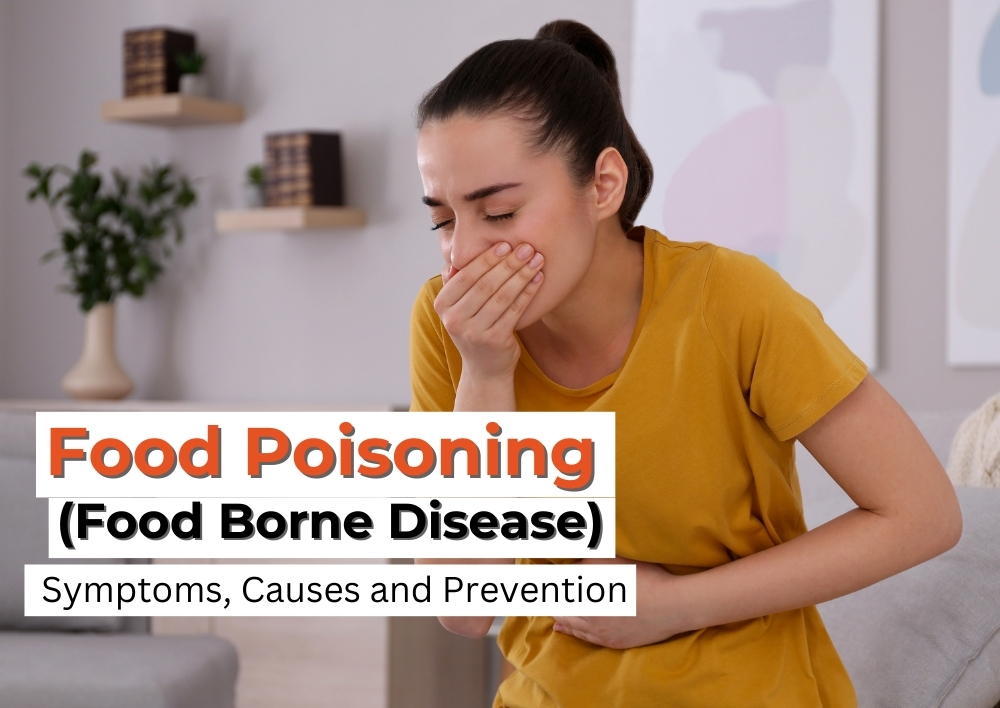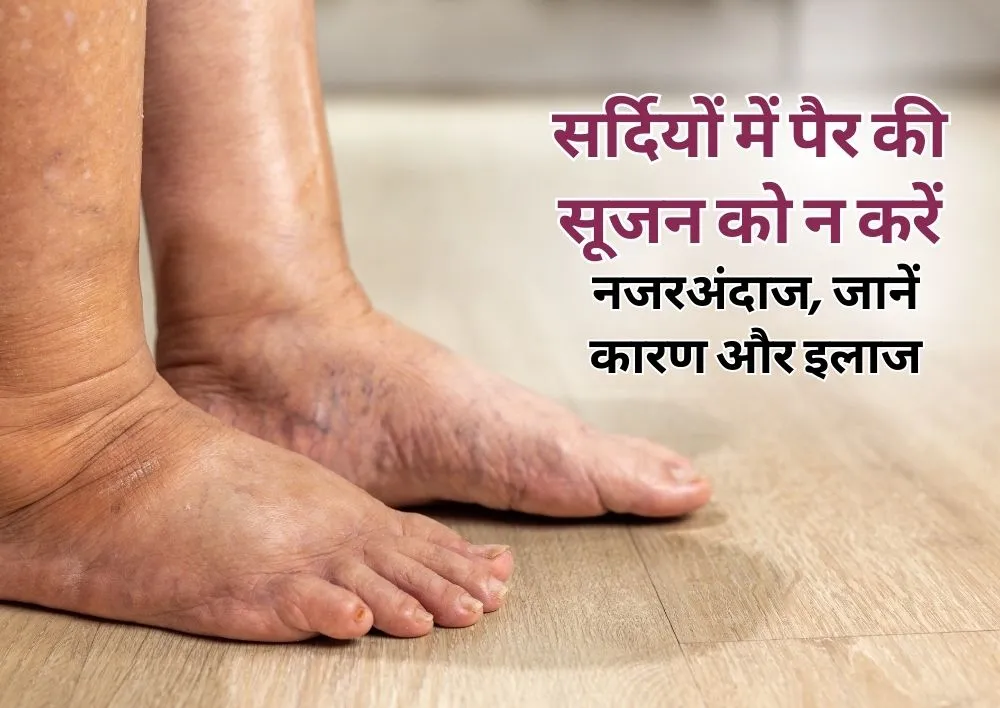Food Poisoning (Food Borne Disease): Symptoms, Causes and Prevention
Summer is the time for outdoor gatherings, and picnics. While enjoying these seasonal delights, the last thing you want is an unexpected guest at your party which is food poisoning. This unpleasant and sometimes dangerous condition is caused by consuming contaminated food or beverages. This culprit can turn a fun day into a nightmare, but with a few simple precautions, you can keep your summer fun and safe. Here’s your ultimate guide to understanding, preventing, and dealing with food poisoning.
What is Food Poisoning?
Food poisoning is one of the most common food borne diseases, and is caused by consuming contaminated food or beverages. The common culprits are bacteria, viruses, parasites, or toxins. The symptoms of food poisoning can range from mild to severe and typically include nausea, vomiting, diarrhea, stomach cramps, and sometimes fever. Symptoms can appear within hours or take days to develop, making it tricky to identify the exact cause.
Food Poisoning Symptoms
According to the best general physician in Gurgaon at Miracles Apollo Cradle/Spectra, the symptoms of food poisoning can vary depending on the source of contamination. The common symptoms include:
-
Nausea: Feeling like you need to vomit.
-
Vomiting: Throwing out the contents of the stomach through the mouth.
-
Diarrhea: Frequent, loose, or watery bowel movements.
-
Stomach Cramps: Pain or discomfort in the abdominal area.
-
Fever: High body temperature, usually a sign of an infection.
-
Chills: Feeling cold and shivering, often accompanied by fever.
-
Headache: Pain or discomfort in the head.
-
Weakness: Feeling tired or fatigued.
-
Muscle Aches: General body soreness or muscle pain.
Additional Symptoms based on the Causes
-
Botulism: Muscle weakness, blurred vision, drooping eyelids, slurred speech, and difficulty swallowing.
-
Listeria: Severe headaches, stiff neck, confusion, loss of balance, and disruptions.
-
Salmonella: Bloody stools, high fever, and prolonged symptoms.
-
E. coli: Severe, bloody diarrhea and abdominal pain without much fever.
Symptoms can appear within hours or take days to develop. Most cases are mild and resolve on their own, but severe cases can lead to dehydration and require medical attention.
Food Poisoning Causes
Food poisoning can be caused by various pathogens such as bacteria, viruses, parasites, toxins, and food contaminants. Here are some common causes of food poisoning include:
1. Allergens: Certain foods can trigger allergic reactions, which can sometimes mimic symptoms of food poisoning if ingested by individuals with allergies.
2. Bacteria:
-
Salmonella: Found in undercooked poultry, eggs, and unpasteurized milk.
-
E. coli: Often from undercooked ground beef, raw vegetables, and unpasteurized milk or juice.
-
Campylobacter: Generally found in raw or undercooked poultry, unpasteurized milk, and contaminated water.
-
Listeria: Found in ready-to-eat meats, unpasteurized dairy products, and specific fruits and vegetables.
-
Clostridium perfringens: Often from improperly stored or reheated meat dishes.
-
Staphylococcus aureus: Produces toxins in food that isn't refrigerated properly, such as salads, deli meats, and dairy products.
3. Viruses:
-
Norovirus: Often spread through contaminated food or water, commonly associated with shellfish and ready-to-eat foods.
-
Hepatitis A: Can be transmitted through contaminated food and water, especially in areas with poor sanitation.
4. Parasites:
-
Cryptosporidium:Found in contaminated water and can infect fruits and vegetables.
-
Giardia: Often found in untreated water sources and can contaminate food through poor hygiene practices.
5. Toxins:
-
Scombrotoxin: Histamine-producing bacteria in improperly stored fish, especially tuna, mackerel, and mahi-mahi.
-
Botulinum toxin: Produced by Clostridium botulinum in improperly canned or preserved foods.
6. Chemicals:
-
Pesticides and heavy metals: Can contaminate food through improper agricultural practices or environmental pollution.
7. Contaminated Food: Consuming food contaminated during production, processing, storage, or preparation.
8. Contaminated Water: Drinking or using contaminated water in food preparation.
9. Improperly Stored Food: Allowing bacteria or toxins to grow due to improper storage temperatures or inadequate cooking or reheating.
10. Poor Hygiene: Not washing hands or food surfaces thoroughly, allowing pathogens to transfer to food.
Diagnosis of Food Poisoning
Diagnosing food poisoning typically involves a combination of clinical evaluation, patient history, and, in some cases, laboratory tests. Here’s a detailed process for diagnosing food poisoning:
1. Clinical Evaluation: The doctor will ask about the symptoms and onset of the symptoms you are experiencing. They will check for signs of dehydration, such as dry mouth, decreased urine output, and dizziness.
2. Patient History: The doctor will take a detailed patient history to find the root cause of the problem which may include:
-
Food History: Detailed inquiry about recent food and drink intake, including where and when the food was consumed. This can help identify potential sources of food contamination.
-
Travel History: Recent travel, especially to areas with known foodborne illness outbreaks, can provide hints.
-
Exposure History: Whether others who consumed the same food are also sick, indicating a potential outbreak.
-
Underlying Health Conditions: Pre-existing conditions that may increase susceptibility to severe illness.
3. Physical Examination:
-
Abdominal Examination: Assess for tenderness, distension, and bowel sounds.
-
Systemic Examination: Look for signs of systemic involvement, such as fever and rash.
4. Laboratory Tests:
-
Stool Samples: Analyzing stool samples can help identify specific bacteria, viruses, or parasites causing the illness.
-
Blood Tests: Blood tests may be performed to check for dehydration, electrolyte imbalances, and infection markers.
-
Other Tests: In severe cases, additional tests like urine tests and imaging studies such as ultrasound abdomen may be required.
5. Differential Diagnosis:
-
Rule Out Other Conditions: It's important to differentiate food poisoning from other conditions with similar symptoms, such as gastrointestinal diseases, appendicitis, and urinary tract infections.
Treatment of Food Poisoning
Treatment for food poisoning generally focuses on managing symptoms and preventing dehydration. Here are some key steps and considerations for treating food poisoning:
-
Hydration: Drink plenty of fluids, especially water, or oral rehydration solutions (ORS) to replace lost fluids and electrolytes due to vomiting and diarrhea. Take frequent and small sips rather than trying to drink large amounts at once.
-
Rest: Get plenty of rest and avoid strenuous activities to allow your body to recover. Use a heating pad or hot water bottle on the abdomen to relieve cramps and discomfort.
-
Eat Bland Foods: Once you can tolerate food, start with bland, easy-to-digest items like toast, rice, bananas, and applesauce.
-
Seek Medical Attention: If you experience severe symptoms such as high fever, bloody stools, persistent vomiting, or signs of dehydration (e.g., dry mouth, decreased urine output, dizziness), seek medical help immediately.
Food Poisoning Medicines
Food poisoning medicine primarily focuses on managing symptoms and preventing dehydration. Here are common medications used:
-
Rehydration Solutions:
-
Oral Rehydration Solutions (ORS): These contain a balanced mix of salts and sugars to help rehydrate the body.
-
Intravenous (IV) Fluids: For severe dehydration, especially if oral intake is difficult.
-
-
Anti-Nausea Medications
-
Anti-Diarrheal Medications
-
Antibiotics
-
Probiotics: May help restore normal gut flora, although evidence on their effectiveness varies.
-
Pain and Fever Relief
Food Poisoning Prevention Tips
1. Practice Good Hygiene
-
Hand Washing: Always wash your hands with soap and water for at least 20 seconds before and after handling food, after using the bathroom, and after touching pets.
-
Clean Surfaces: Regularly clean and sanitize kitchen surfaces, utensils, cutting boards, and countertops.
-
Avoid Cross-Contamination: Use separate cutting boards and utensils for raw meat, poultry, seafood, and vegetables.
2. Cook Food to Safe Temperatures: Proper cooking kills harmful bacteria and viruses in food. Use a food thermometer to ensure that foods are cooked to the right temperatures:
-
Poultry: 165°F (74°C)
-
Ground Meat: 160°F (71°C)
-
Fish: 145°F (63°C)
-
Leftovers and Casseroles: 165°F (74°C)
3. Store Food Safely
-
Refrigeration: Keep your refrigerator at or below 40°F (4°C) and your freezer at 0°F (-18°C).
-
Prompt Storage: Refrigerate perishable foods within two hours of cooking or purchasing, or within one hour if the temperature is above 90°F (32°C).
-
Proper Organization: Store raw meat, poultry, and seafood in sealed containers on the bottom shelf of the refrigerator to prevent their juices from contaminating other foods.
4. Safe Food Preparation
-
Wash Fruits and Vegetables: Rinse all fresh fruits and vegetables under running water before eating, cutting, or cooking. Use a brush for firm-skinned produce.
-
Thawing: Thaw frozen food in the refrigerator, in cold water, or in the microwave, not on the counter.
5. Be Cautious with High-Risk Foods
-
Raw and Undercooked Foods: Avoid consuming raw or undercooked meat, poultry, seafood, eggs, and products containing raw eggs.
-
Unpasteurized Products: Avoid unpasteurized milk, cheese, and juices, as they can have harmful bacteria.
-
Shellfish: Be extra careful with shellfish, which can carry toxins even after cooking. Ensure they come from reputable sources.
6. Educate and Advocate
- Family and Friends: Educate those around you about food safety practices to ensure everyone handles food properly.
-
Restaurant Practices: When eating out, choose restaurants with good hygiene practices and avoid places that seem unsanitary.
Conclusion:
Food poisoning is an unwelcome guest at any gathering, but with the right precautions, you can keep it at bay. Enjoy your summer festivities with peace of mind, knowing you’ve taken steps to protect yourself and your loved ones. Stay safe, stay informed, and savor every bite of your summer adventures. If you or someone you know is experiencing severe symptoms of food poisoning, don't wait, consult the general physician near you at Miracles Healthcare immediately. Timely treatment can make all the difference in preventing complications. Stay safe, eat well, and take control of your health today!














Was the information useful?
0 0